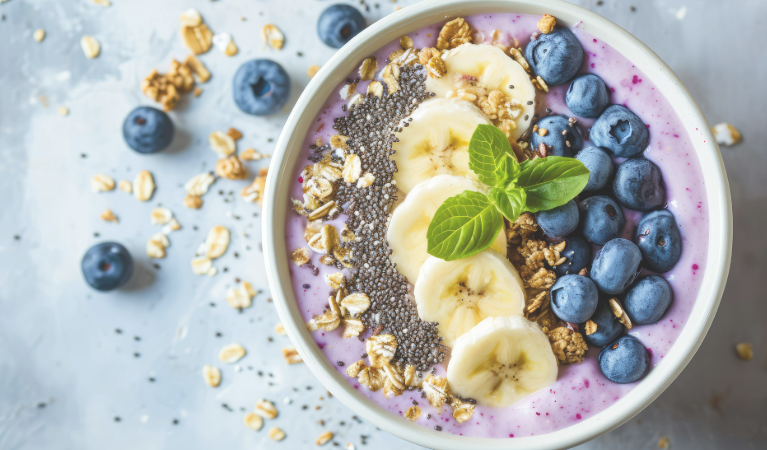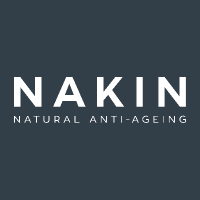Natural Collagen Foods

Natural Collagen Foods
Collagen is often hailed as the fountain of youth, and for good reason. It's the most abundant protein in our bodies, acting as the primary building block for our skin, bones, muscles, and connective tissues. Think of it as the scaffolding that holds everything together, providing strength and elasticity. As we age, our natural collagen production begins to decline, leading to common signs of ageing like fine lines, wrinkles, and sagging skin.
Good skincare like our natural anti-ageing face products will help with collagen products, but while countless creams and supplements promise to restore this vital protein, one of the most effective ways to support your skin's health is from the inside out. Your diet plays a crucial role in providing the necessary nutrients for your body to produce and maintain collagen. This guide will explore the best natural collagen foods and how you can easily incorporate them into your meals for a healthier, more radiant complexion.
Understanding Collagen and Diet
Before we dive into specific foods, it's important to understand how diet influences collagen levels. There are two main types of foods that can help:
- Foods rich in collagen: These are primarily animal products that contain high amounts of this protein. When you consume them, your body breaks the collagen down into amino acids, which are then used to build new proteins where needed.
- Foods that support collagen production: These foods contain the essential vitamins and minerals—like vitamin C, zinc, and copper—that your body requires to synthesise its own collagen. Think of these as the co-workers that help collagen get its job done.
A balanced diet that includes both types of foods is the best strategy for maintaining healthy skin.
Foods Naturally Rich in Collagen
Incorporating foods that are direct sources of collagen can give your body a head start. Here are some of the most potent options.
Bone Broth
Bone broth is arguably the king of collagen-rich foods. It's made by simmering animal bones and connective tissues (from chicken, beef, or fish) for an extended period. This process extracts collagen, along with other beneficial amino acids and minerals, into a nutrient-dense broth. Sipping on a warm cup of bone broth or using it as a base for soups and stews is a simple and effective way to increase your collagen intake.
Chicken
Chicken, particularly the skin and cartilage, is a fantastic source of collagen. You've likely noticed that a whole roasted chicken contains plenty of connective tissue—this is where the collagen resides. Including chicken with the skin on in your diet can provide a direct supply of this skin-loving protein. Chicken neck and cartilage are especially rich sources.
Fish and Shellfish
Fish, especially its skin, bones, and head, is packed with marine collagen. This type of collagen is easily absorbed by the body. Fatty fish like salmon are not only good collagen sources but also provide omega-3 fatty acids, which help keep skin cells hydrated and plump. Sardines, eaten whole with the bones, are another excellent choice. Shellfish also contain collagen along with zinc, a key mineral for collagen synthesis.
Egg Whites
While not as dense in collagen as bone broth, egg whites contain large amounts of proline, one of the primary amino acids required for collagen production. Including eggs in your breakfast or other meals provides your body with the fundamental building blocks it needs to create its own collagen.
Foods That Boost Collagen Production
Even if you follow a plant-based diet, you can still support your skin's health by eating foods rich in the nutrients necessary for collagen synthesis.
Citrus Fruits
Vitamin C is absolutely essential for collagen production. It acts as a crucial cofactor in the chemical reactions that link amino acids together to form collagen fibres. Without enough vitamin C, the process grinds to a halt. Oranges, grapefruits, lemons, and limes are all loaded with this vital nutrient. Start your day with a glass of fresh orange juice or squeeze lemon over your meals.
Berries
Berries are another vitamin C powerhouse. A handful of strawberries, for example, can provide more vitamin C than an orange. Blueberries, raspberries, and blackberries are also excellent choices. On top of that, berries are rich in antioxidants that protect the skin from free radical damage, which can break down existing collagen.
Leafy Green Vegetables
Dark leafy greens like spinach, kale, and Swiss chard are nutritional champions. They offer a good amount of vitamin C and also contain chlorophyll, which some studies suggest may increase the precursor to collagen in the skin. Adding a large salad or a side of steamed greens to your daily routine is a simple way to get these benefits.
Bell Peppers
Bell peppers, especially the red variety, are one of the best dietary sources of vitamin C. They also contain capsaicin, an anti-inflammatory compound that can help combat signs of skin ageing. Add them to salads, stir-fries, or enjoy them raw with a healthy dip.
Tomatoes
Tomatoes are another hidden hero for skin health. They are rich in vitamin C and also boast high levels of lycopene, a powerful antioxidant that helps protect the skin from sun damage and collagen breakdown. Cooking tomatoes can even increase the availability of lycopene.
Beans
Beans are a high-protein food that contains many of the amino acids necessary for collagen synthesis. They are also a good source of copper, another mineral that is essential for the production of collagen. Incorporating different types of beans, like kidney beans or chickpeas, into your diet is great for your overall health and your skin.
Nuts and Seeds
Nuts and seeds provide a one-two punch for collagen support. Many, like pumpkin seeds and cashews, are rich in zinc and copper—two minerals vital for the collagen production cycle. Almonds and sunflower seeds also offer vitamin E, which works alongside vitamin C to support skin health.
Tips for a Collagen-Boosting Diet
Now that you know which foods to look for, here are some practical tips to weave them into your daily life.
- Start Your Day with Protein: Include eggs, a berry smoothie, or Greek yoghurt (which contains proline) in your breakfast to supply your body with amino acids early in the day.
- Make Friends with Soup: Use bone broth as the base for homemade soups and stews. It’s a comforting and easy way to consume collagen directly.
- Snack Smart: Reach for a handful of berries, some nuts, or sliced bell peppers with hummus instead of processed snacks.
- Eat a Rainbow: Aim to fill your plate with a variety of colourful fruits and vegetables. This ensures you are getting a wide range of vitamins, minerals, and antioxidants to support skin health.
- Don't Forget the Garnish: A simple squeeze of lemon or lime juice over your fish or chicken not only adds flavour but also a boost of vitamin C to aid collagen synthesis.
By focusing on a diet rich in whole foods, you provide your body with all the tools it needs to maintain strong, supple, and glowing skin. While no food can stop the clock entirely, a collagen-friendly diet is a powerful and natural way to support your skin's health for years to come.


Leave a comment